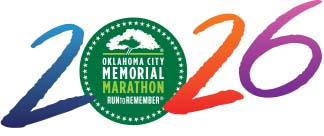By Darlene Franklin
I’ve never been to war. Aside from a few skirmishes, neither had anyone in Israel’s army. After being freed from Egypt and spending forty years wandering, the desert-hardened Israelite army prepared to fight for the land promised to them by God. How did they feel? Nervous, anxious for their first battle, wanting to get it over with, so they could get on with their new lives? I’ve never been to war. Aside from a few skirmishes, neither had anyone in Israel’s army. After being freed from Egypt and spending forty years wandering, the desert-hardened Israelite army prepared to fight for the land promised to them by God. How did they feel? Nervous, anxious for their first battle, wanting to get it over with, so they could get on with their new lives? They set up camp, all 600,000 of them, spreading out from Jericho’s front gates. Expecting war, imagine how they felt when all they did was to march around the walls one time every day each day for a week with trumpets sounding. You may know the story. At the end of the week, they marched seven times, the instruments blared, the men shouted—and the walls fell down. The battle ended before they threw a spear (Joshua 6).Centuries later, the judge Gideon led a small group of three hundred men to fight the Midianites, Amalekites, and others who’d oppressed the Jewish people. Again, God used the weapon of music—a blaring trumpet—to defeat the opposition (Judges 7).During Jesus’ final week on earth, the crowds sang hosanna when He rode into Jerusalem on the back of a donkey. A few days later, the disciples “sang a hymn and departed” after the Last Supper, beginning the countdown to Jesus’ death. Is it any wonder that Isaiah links strength and music?Behold, God is my salvation; I will trust, and not be afraid; for the Lord JEHOVAH is my strength and my song; He also is become my salvation. (Isaiah 12:2 KJV)His words echo Moses’ song after crossing the Red Sea (Exodus 15:2,), as well as the psalmist’s words in Psalm 118:14. Music composed at the height of war has become national anthems (the United States’ Star Spangled Banner and France’s La Marseillaise). In the mid-twentieth century, songs like “We Shall Overcome” played a vital role in the civil rights movement. It’s easier to imagine the connection between music and patriotism than between music and war. There are narratives (probably not factual) of children marching to the Crusades while singing “Fairest Lord Jesus.” Many translations of Isaiah 12:2 plainly place music in war’s arsenal (the Lord is my strength and my song, see the KJV and many others.) Some changed the English word from “music” to “defense” instead. None of the commentaries or lexicons I consulted gave me a clue as two such different words have been used. Neither commentaries and Hebrew word meanings helped me understand how the same word means two such different things, or why the translators changed their work. Was it possible that music was defense?It is for me. When I’m tired, discouraged, unable to sleep, I hum “Abide with me.” If rejoicing in God’s good gifts? How about “Joy to the world, the Lord is come?”When I checked a website for hymns based on Isaiah 12:2, I found over over thirty songs. Here are a few of my favorite phrases: “Jesus! ’’Tis music in the sinner’s ears, ‘Tis life, and health, and peace”—Isaac Watts“I am trusting Thee for power, Thine can never fail”—Frances Ridley HarvergalAnyone who’s ever been moved by a song on the radio or at a concert can testify to the power of music. It slips into the heart, curls up next to the spirit and warms it even before we take in the words. Who doesn’t want to stand and shout when they hear “I’m Proud to be an American” on the 4th of July? Not to mention Katherine Lee Bates’ immortal words about “America the Beautiful.” Music has the capacity to bypass logic and doubt and stir our worship to God. If we wonder what to sing about, we can look at everything we learn about God in Isaiah 12:2. Our Creator’s creation calls for songs of praise. Yahweh, the great I AM, is the beginning of everything and the source of songs of praise. He was Salvation for those before Jesus took on human form, born of the virgin Mary. The love demonstrated at the cross “demands my soul, my life, my all.” (Isaac Watts) God my salvation and strength is also my defense. Let His praise be continually on my lips.
Darlene Franklin is both a resident of a nursing home in Moore, and a full-time writer.














